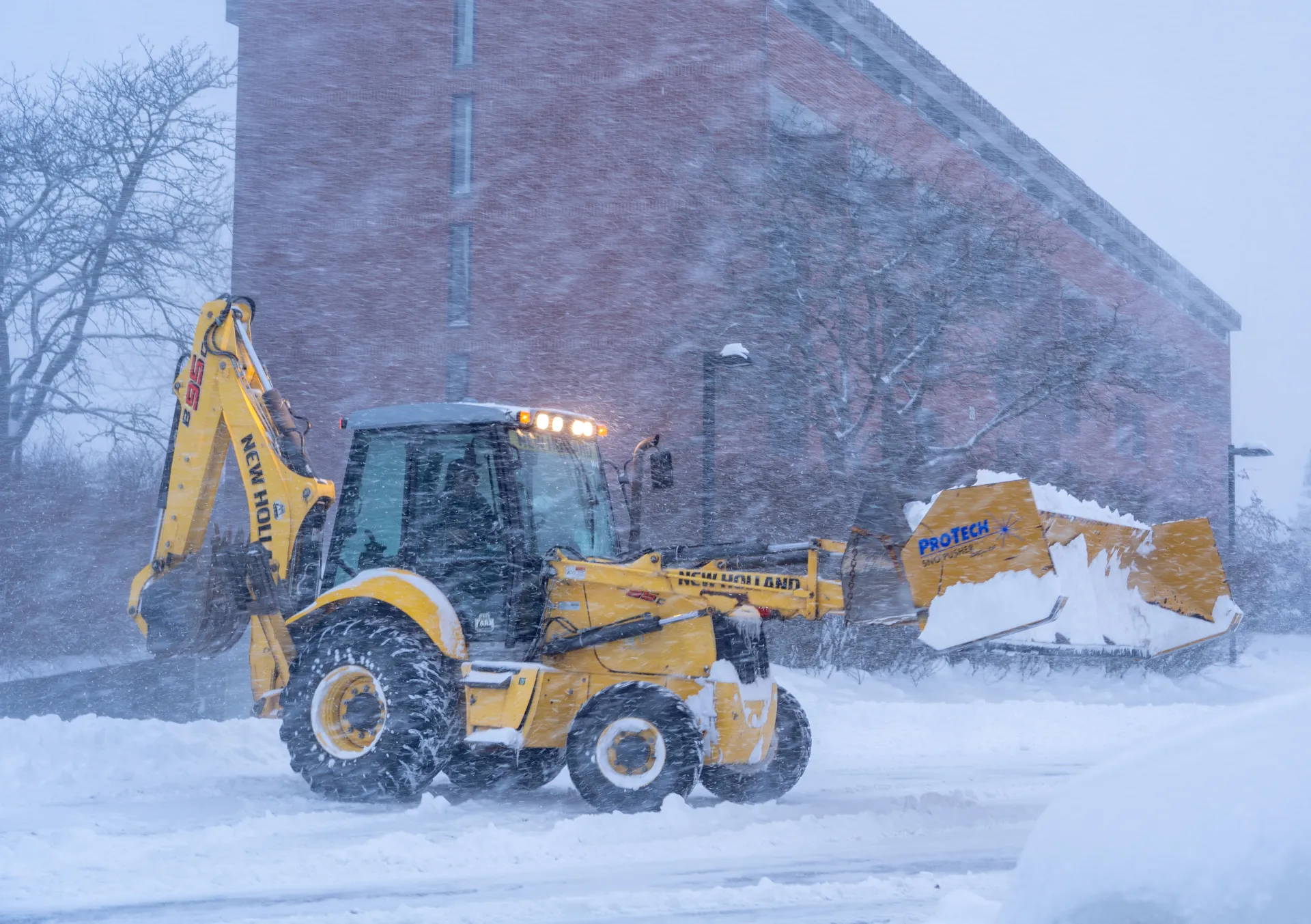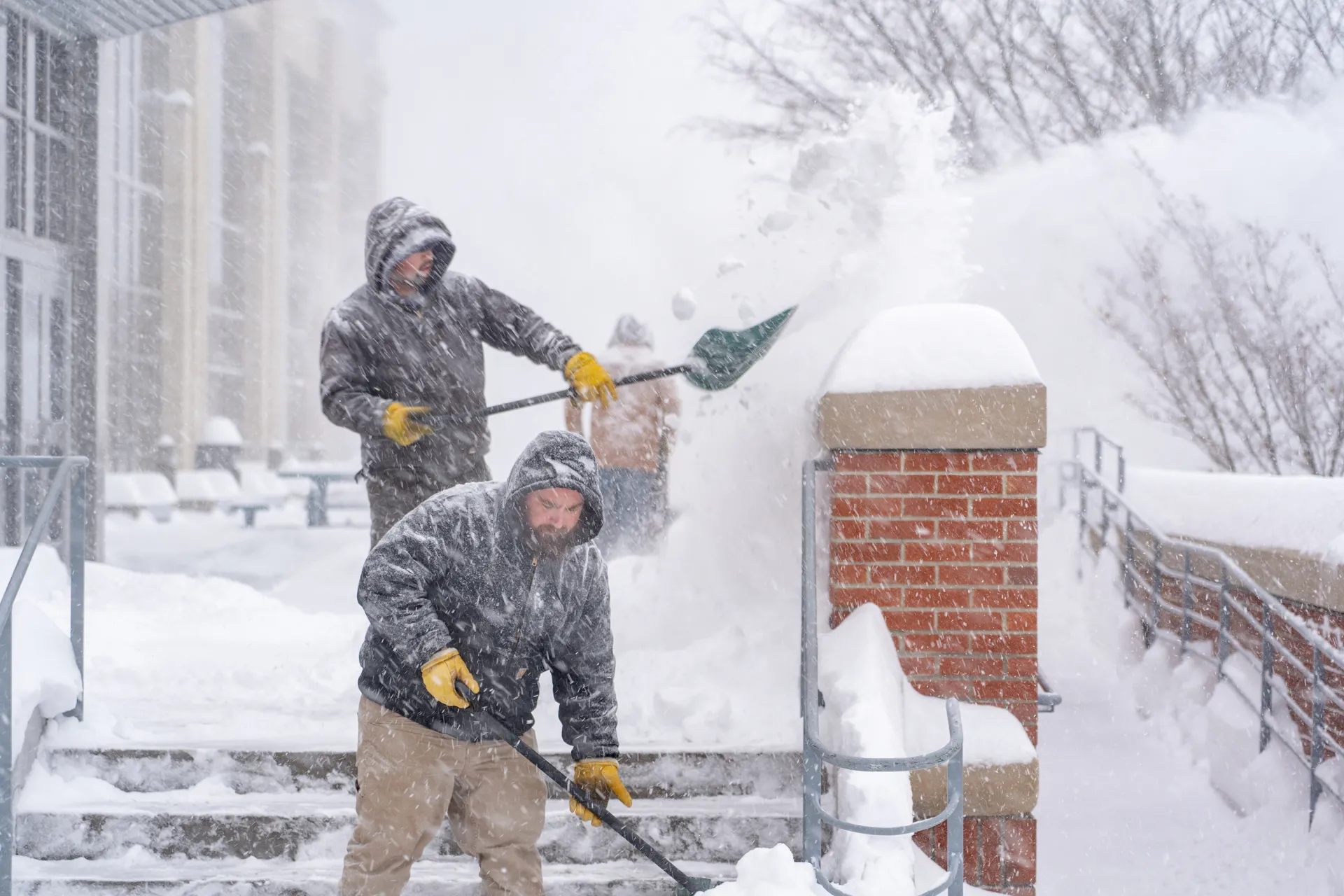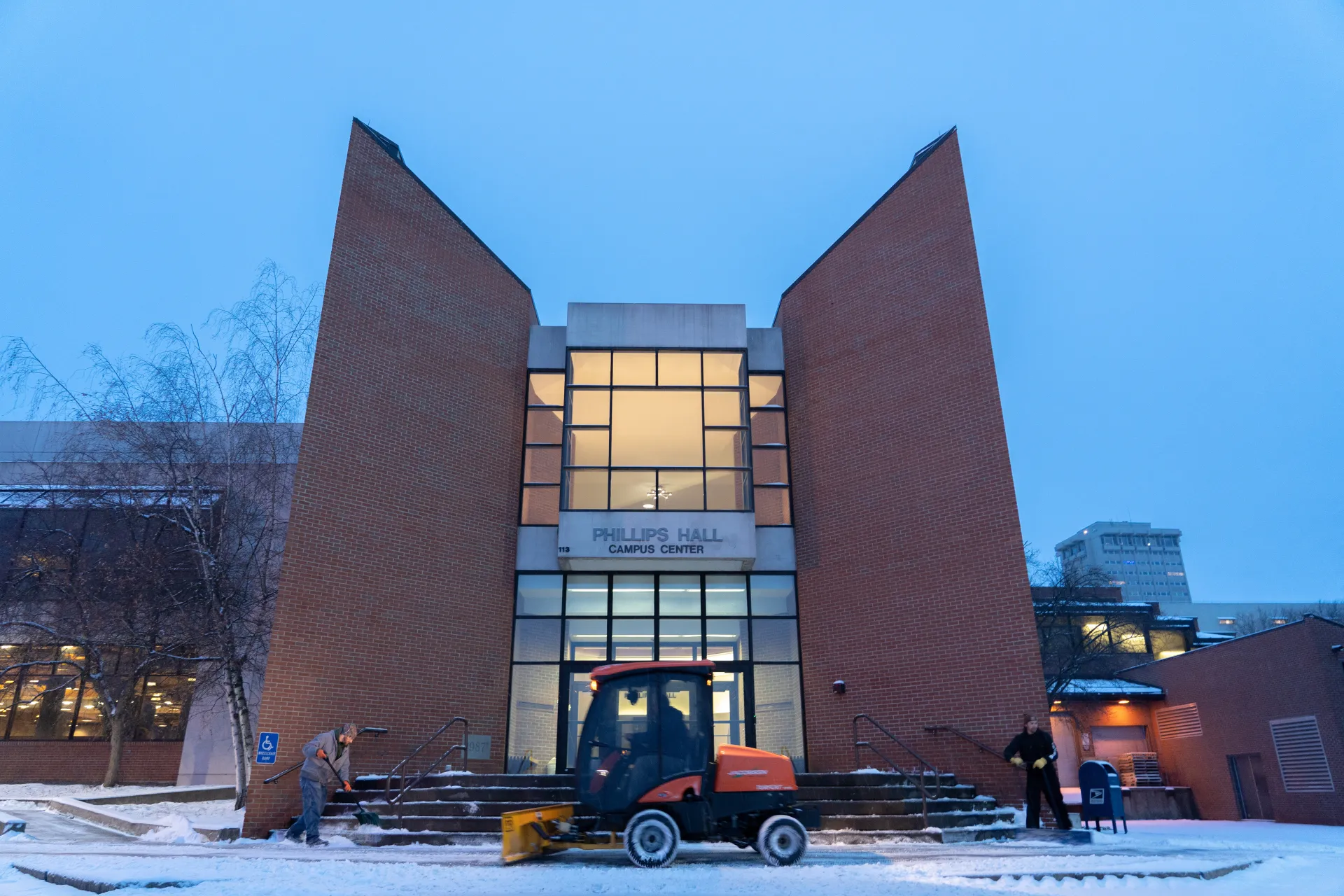You may know that a winter storm dumped more than a foot of snow on Ithaca the same weekend students were returning to campus for the spring semester. What you may not know is that a team of 30 grounds and transportation workers were working around the clock to clear the roads, sidewalks, and parking lots to make it safe for their return. What’s more, they were doing it in single digit temperatures and wind chills of -30 degrees.
“I arrived in Ithaca on Friday, and I saw people out almost all the time,” says Alfio Vasta, a junior in the Roy H. Park School of Communications, who saw some crew members shoveling on campus at 4 a.m. on Monday and gave them a shout-out on Facebook.
“I appreciate their efforts in battling the snowstorm during move-in weekend, which can't have been easy,” he says. “I was also surprised at how the shoveling and plowing seemed to be almost a 24-hour ordeal.”


